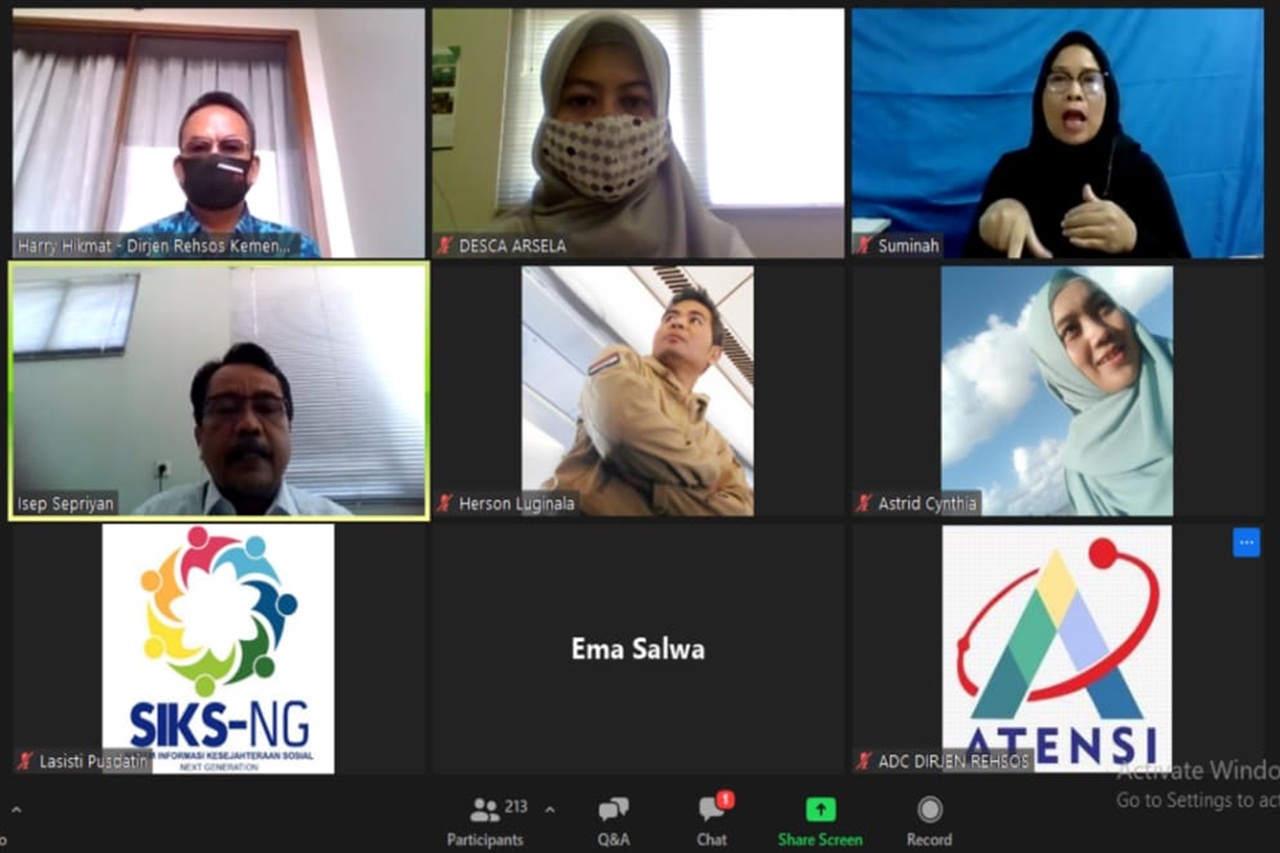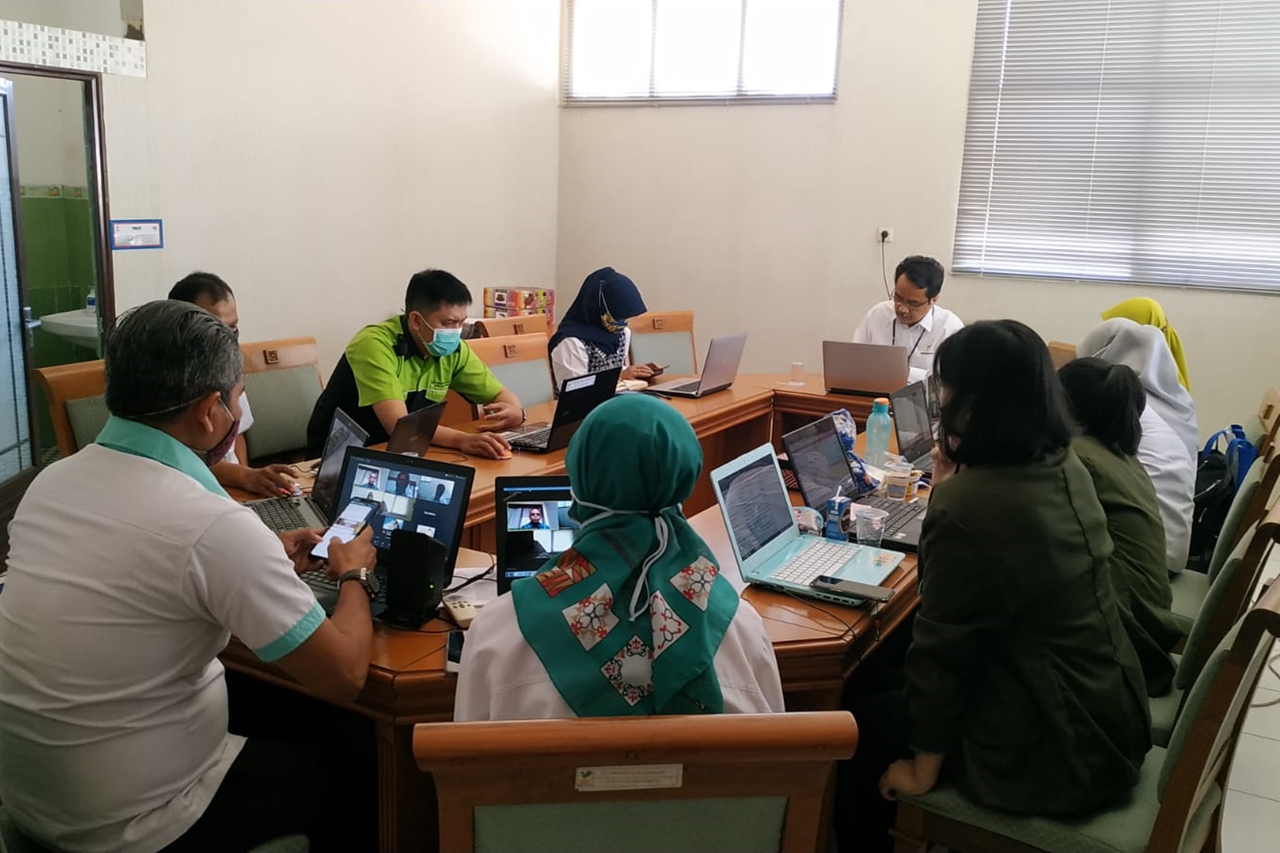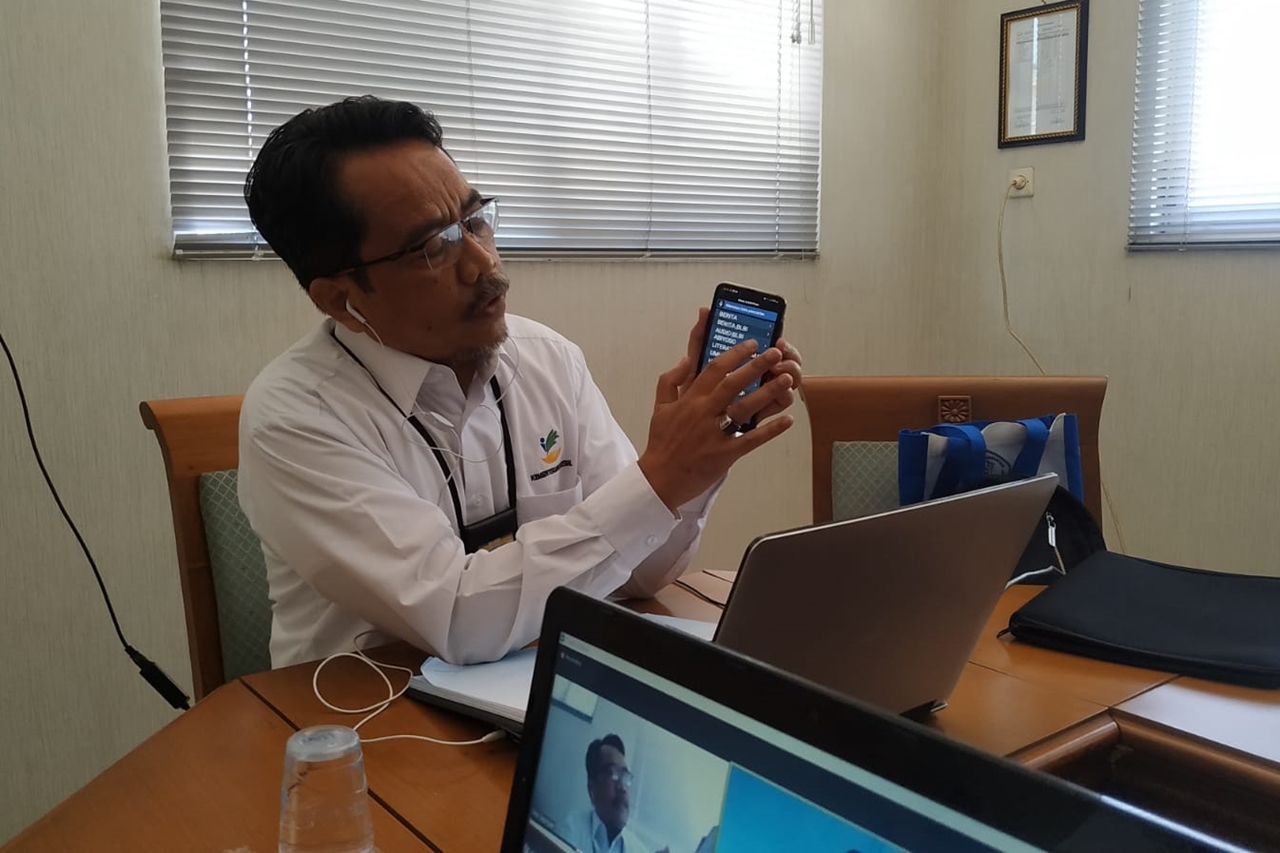CIMAHI (August 27, 2020) - The Indonesian Braille Literacy Center (BLBI) "Abiyoso" in Cimahi held a Webinar activity entitled "Improving Literacy for Persons with Visual Sensory Disabilities (PDSN) through Braille Literacy". This activity presented a number of resource persons, both from the Indonesian Ministry of Social Affairs, practitioners, and braille literacy activists. This Webinar activity is also an inclusive activity so that a Sign Language Interpreter (JBI) is provided who translates the speakers during the activity. A total of 359 participants joined the webinar.
In his speech, the Head of BLBI "Abiyoso", Isep Sepriyan, said that BLBI "Abiyoso" as a braille literacy manager, a national reference center for braille literacy, and a braille laboratory, is committed to producing quality literacy products that meet the needs of PDSN. In addition, holding this webinar also aims to arouse public interest in helping PDSN, especially in accessing information and Braille reading materials.
The Director General of Social Rehabilitation of the Ministry of Social Affairs, Harry Hikmat, in his presentation emphasized the importance of three types of approaches to building a literacy culture, namely family, community, and residential based.
He explained that to improve the literacy skills of PDSN, it is necessary to start from the family. Thus, parents need to be given an understanding of how to guide their children, who are PDSN to be able to access literacy, especially braille literacy. Likewise with the community-based approach.
Harry gave an example of a number of programs that have been implemented by BLBI "Abiyoso", namely the Mobile Library and Storytelling as an effort that is indeed the right way to implement this approach. Discussing the residential or hall-based approach, Harry also gave an example of one of the BLBI services "Abiyoso", namely the Whispering Cinema.
At the end of his presentation, Harry reminded BLBI "Abiyoso" to continue to innovate by producing literacy in other forms, which are in accordance with the needs of PDSN, especially electronic formats, because the era of digitalization and technology cannot be ignored at all.
Furthermore, there were four speakers who delivered material, namely: Eva Rahmi Kasim (Director of Social Rehabilitation for Persons with Disabilities of the Ministry of Social Affairs of the Republic of Indonesia), Weningsih (Education Consultant of Perkins International Indonesia), Rina Prasarani (Social Observer for Persons with Visual Sensory Disabilities), and Dimas Muharram (Researcher, Ministry of Education and Culture of the Republic of Indonesia and the Founder of Kartunet).
Weningsih as a literacy practitioner who handles persons with disabilities emphasizes the importance of introducing braille literacy from an early age for blind children. According to her, even if the child has not yet reached school age, he needs to be accustomed to touching braille when accessing objects around him so that when he has received lessons about braille, the child will remember and become easier to understand.
In line with Weningsih, Rina Prasarani, who is often called "Mami Ina", said that the key to success in educating blind children, especially those with multiple disabilities, is patience. She also expressed her pride as a braille user. Although she now uses a more "talking" computer (a computer with a screen reader), she never abandons braille.
She also advised the public that braille writing is not a special facility, but a primary need for the blind in the field of literacy. "The blind don't need special treatment, but proper treatment. When we need braille, then provide braille. It's not a specialty, but a necessity."
Meanwhile, Dimas Muharram describes seven things related to the benefits of braille literacy. The seven things are taken from the seven letters (BRAILLE). B=To feel the future; R=Get a lot of achievements by writing; A=Think of weakness as an opportunity; I=Heed the writing without typo; L=Expand knowledge and language skills; L=Step to the end of the world; E=The era of technology will not replace braille. He concluded, "Braille is not everything, but everything starts from Braille."
As the last speaker in this activity, Eva Rahmi Kasim concluded that BLBI Abiyoso is not just an institution that produces literacy materials but an institution that presents literacy from an early age (life cycle).
As the only government institution that produces braille literacy, BLBI Abiyoso also provides literacy access for the community by educating families and communities so that people are aware of braille literacy.
 English
English
 Bahasa
Bahasa



